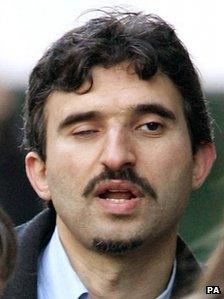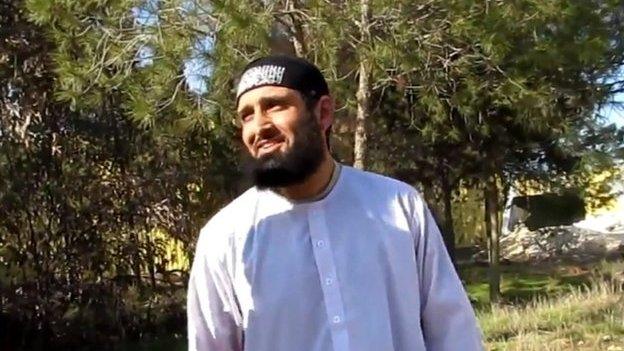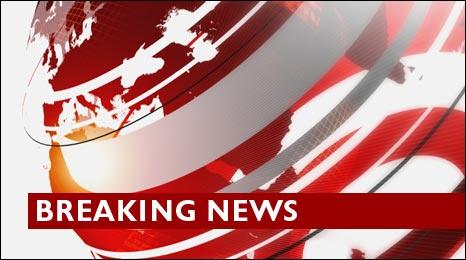Brighton teenager Abdullah Deghayes killed in Syria
- Published
Abdullah Deghayes' father Abubaker: "I can feel some comfort that he went for a just cause"
A British teenager who "died in battle" in Syria has been described as a "martyr" by his father.
Sussex Police said they received information on Monday that 18-year-old Abdullah Deghayes, from Brighton, had been killed "in recent weeks".
The foreign secretary has urged Britons not to fight in Syria and police say they face arrest on their return.
But Abubaker Deghayes said his son was in Syria with his two brothers to fight a "dictator" and was not a terrorist.
'Just cause'
At his home in Brighton, Abubaker Deghayes said he had heard of his son Abdullah's death though Facebook.
He said: "As far as I know, Abdullah went to Syria - without my consent or his mother's consent - to fight in Syria against the dictator [President Bashar al-Assad].
"He was killed in a battle, as far as I know."
He said one of Abdullah's brothers, Amer, 20, suffered a bullet wound to the stomach in the battle, while another brother, Jafar, 16, was unhurt.
"I never encouraged him and he went there of his own free will," Mr Deghayes said.
"I am sad for the loss of Abdullah, but at the same time, I can feel some comfort as he went for a just cause.
"I hope he's in peace. Neither Abdullah or his brothers are terrorists."
He said his son, who lived with his mother in Brighton and was due to go to university in the city, left the UK in January.
Mr Deghayes revealed he travelled to Turkey earlier this year to meet Abdullah and Jafar in an attempt to stop them entering Syria to fight.
"He was a youngster who didn't communicate a lot. With parents, once they grow, they don't tell you much about their lives," Mr Deghayes said.
A spokeswoman said the Foreign Office was aware of reports of the death of a British national in Syria and was looking into them.
Foreign Secretary William Hague said the teenager's death was "very sad news for the family", and added it was the government's advice that people should not travel to Syria.
Mr Hague told the BBC: "We are concerned about British nationals travelling to Syria. Do not travel - the dangers are extreme."
He said the government was working with authorities and security services in other countries to stop people going to Syria, but admitted it was hard to stop British nationals travelling from the UK to Syria through third countries.
William Hague urged British citizens not to travel to Syria, saying "the dangers there are extreme"
'Heart was different'
The teenager was the nephew of Omar Deghayes, who was held by the US at the Guantanamo Bay camp as an enemy combatant following his arrest in Pakistan in 2002.
The former detainee - said by his lawyer to be the victim of mistaken identity - was released without charge in 2007.
He said he knew very little of the circumstances of his nephew's death.
"He ran away from his home... we didn't know at first," he said, speaking from Tripoli.
In a statement issued later, he said his nephew was "just like any 18 year old but his heart was different".
Omar Deghayes said: "He couldn't sit still watching the news of the gross injustice taking place in Syria.

Omar Deghayes said his nephew ran away from home
"For Abdullah it was not enough to just donate money or baby milk, he felt he needed to do more."
About 400 Britons are thought to have gone to Syria in the past two years, with an estimated 20 having died.
In the past few months counter-terrorism investigators have expressed concerns about British jihadists travelling to Syria to learn how to make bombs and to handle guns.
In February, Abdul Waheed Majeed, from Crawley, died when he drove a truck bomb at the gates of Aleppo Prison.
The father of three travelled to Syria last July as a driver for a nationwide aid convoy, taking supplies to refugee camps along the border with Turkey.
He spent six months in the region, sending his family regular reports of construction work he was undertaking to improve camp sanitation.
More than 30 people have been arrested this year as police step up operations to stop British nationals from fighting in Syria.
- Published20 March 2014
- Published11 March 2014

- Published5 September 2011
- Published16 November 2010
